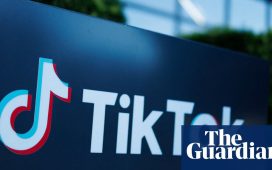Box from Empathy Wines
Empathy Wines
Consumers have spent the past couple decades shifting their spending habits to the internet. Now, with local stores closed and millions of people social distancing, the web has become — by default — the place we shop.
In a tweet last week that went viral, industry newsletter 2PM posted the words, “10 years vs. 8 weeks,” followed by a chart showing that e-commerce penetration climbed to 27% from 16% in just eight weeks of quarantine. That was the same amount of market share growth it achieved over the prior decade.
Amazon, unsurprisingly, has been the biggest single beneficiary, focusing on essential household and medical items. Beyond the e-retailing giant, consumers have flocked to the websites of Walmart, Target and Best Buy, which all saw surging online sales in the first quarter at the expense of physical retail.
But there’s a wide swath of smaller sites and niche brands that were built for the internet shopper and are now seeing spikes in their business that they never could have anticipated. One of the leading categories is wine and spirits, which saw a 74% increase in online sales from March 11 through April 21, according to a report earlier this month from Adobe.
Empathy Wines, a web-based vintner that ships three, six or 12 bottles at a time and sells subscriptions that include three shipments a year, is reaching daily sales levels now that it normally sees only on Black Friday and Cyber Monday. The company, co-founded two years ago by media entrepreneur Gary Vaynerchuk, has been able to dial up its digital marketing efforts to reach people who are no longer going to liquor stores.
In addition to reasonable prices — bottles sell for $20 — Empathy’s wines can only be purchased online, so for many wine drinkers it’s an entirely new brand. The company’s small marketing team is largely based in New York, but the product is made by a winemaker in California, where all the grapes are sourced.
“If there was a silver lining to an otherwise terrible situation, it’s that people are, in some cases for the first time ever, shopping for categories in a new way,” said Jonathan Troutman, co-founder and CEO of Empathy. “We built this business with the idea that consumers were increasingly building toward that behavior.”
Venture capitalist Kirsten Green is seeing that dynamic play out across her portfolio. Her firm, Forerunner Ventures, is an early investor in eyeglass company Warby Parker, skincare brand Glossier, telehealth company Hims and pet food company The Farmer’s Dog.
Green said these internet-based brands were created to take advantage of the efficiencies of selling online and the preference among a large segment of consumers to avoid malls and high-traffic shopping areas. Additionally, they’re attracting new customers now because people aren’t spending on travel, concerts and plays or expensive meals, nor are they hiring babysitters so they can hit the town.
With consumers stuck at home, “it’s not that surprising that they would be spending on personal care, wellness for yourself, fitness and your home,” said Green. “There’s less competition for your dollars because you’re not going on vacation this summer.”
That’s not to say that all e-retail is benefiting. Luggage company Away (which is also part of Green’s portfolio) saw sales plunge 90% in the first few weeks after initial stay-in-place orders and furloughed or laid off over half its staff. The company’s founders said in a blog post at the time that, “it is nearly impossible to continue our mission of transforming travel when travel has come to a halt.”
Clothing and shoes sales are also way down. Apparel prices suffered their biggest April price drop in over five years, according to Adobe.
“It’s not a rising tide lifts all boats” market, said Scott Galit, CEO of money transfer company Payoneer. “We’re seeing more winners and losers at this point,” and the environment “has tended to favor larger more sophisticated sellers,” he added. Payoneer’s data points to growth in categories like electronics, toys, home essentials and home decor, and declines in apparel and cosmetics, other than skin care.
What’s here to stay?
Galit said some of these trends are more permanent than others. While the convenience of buying groceries and hygiene-related products online will long outlast the pandemic, categories like toys “will likely flatten out over time, both as consumers have stocked up on what they feel they need, and as the rise in unemployment and falling markets begin to limit discretionary spending,” he said.
Even for some digital-first brands, there have been some challenges. Warby Parker, Glossier and hair care provider Madison Reed have all had to close physical stores. But they’ve been able to make up for those losses through their online operations.
From February to April, traffic to Madison Reed’s website quadrupled and the number of people buying something every day climbed 13-fold, the company said. CEO Amy Errett told CNBC that even though women have been home, they’re still working and spending a lot of time on video calls so they want to look good. She also called it “an emotional experience.”
“Throughout the period of shelter in place, we consistently saw women skipping their makeup routines, but holding on to hair color,” Errett said, in an email. “It became their one thing. For us, there was a realization that, in an incredibly difficult time, we were able to spread a little joy with a hair color kit.”
The company still has plans to open eight new stores between July 1 and July 15.
LensDirect is experiencing so much growth that CEO Ryan Alovis says he’s considering raising outside funding for the first time since he acquired the business in 2009. Revenue this year at the company, which sells contact lenses, eyeglasses and lens replacements, has already almost surpassed 2018 and 2019 combined, with new customer growth this month up 400% from a year earlier, Alovis said.
LensDirect has a contact lens subscription service, so that every three months, new lenses show up at a customer’s door. Between the ease of signing up, the free shipping and the ability to save money, Alovis doesn’t expect customers who start using the service because of Covid-19 to go back to the old way of buying eyewear.
“It’s set it and forget it,” said Alovis, who owns LensDirect through his holding company The Stella Group. “You don’t need to drive 15 minutes and talk to your eye doctor. You go online and have them shipped for free in 24 hours.”
WATCH: Amazon shares trade near its all-time high as e-commerce booms during Covid-19 lockdowns








